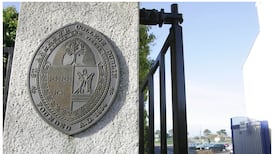THE BIGGEST US banks have already raised most of the $75 billion (€54.5 billion) capital shortfall identified in stress tests earlier this month, according to US treasury secretary Timothy Geithner.
Mr Geithner told the Senate banking committee that the 10 banks that needed more capital had raised $48 billion.
Nine other banks with no capital shortfalls have raised $8 billion, which they will use to repay government bailout funds.
Mr Geithner said, however, that he foresaw a lengthy government involvement with troubled insurance giant AIG, which has received more than $170 billion in bailout funds.
He said untangling AIG’s finances had proved to be more difficult than expected, adding that it was unlikely the government’s role in the company would end within a year.
“In some parts of the financial community it’s going to take a longer period than that, probably with AIG too,” he said.
Responding to criticism from senators for allowing AIG to pay creditors the full value of their debt, Mr Geithner said the government had no authority to negotiate a reduction in the claims.
He said the government planned to start helping banks to sell toxic assets by July, using up to $100 billion of government funds to finance sales of as much as $1 trillion in distressed assets.
“A variety of troubled legacy assets are congesting the US financial system. The vicious cycle of deleveraging has pushed some asset prices to extremely low levels, levels that are indicative of distressed sellers,” he said.
“The difficulty of obtaining private financing on reasonable terms to purchase these assets has reduced secondary-market liquidity and disrupted normal price discovery.
“This constraint on capital reduces the ability of financial institutions to provide new credit and uncertainty about the value of legacy assets is constraining the ability of financial institutions to raise private capital.”
Mr Geithner pointed to “important indications” that the US financial system was recovering, including diminished premiums in corporate, municipal and interbank lending markets.
“Leverage has declined, the most vulnerable parts of the non-bank financial system no longer pose the same risk and banks are funding themselves more conservatively,” he said.
“These are all welcome signs. However, the process of financial recovery and repair will take time.”
Bank of America, the biggest US bank by assets, raised about $13.5 billion yesterday.
The bank issued 1.25 billion shares at an average price of $10.77 each, according to a statement.
The Charlotte, North Carolina-based company plans to boost common equity capital by $17 billion through the sale of stock and by converting preferred shares mostly held by institutional investors, its chief executive, Kenneth Lewis, has said. – (Additional reporting: Bloomberg)







